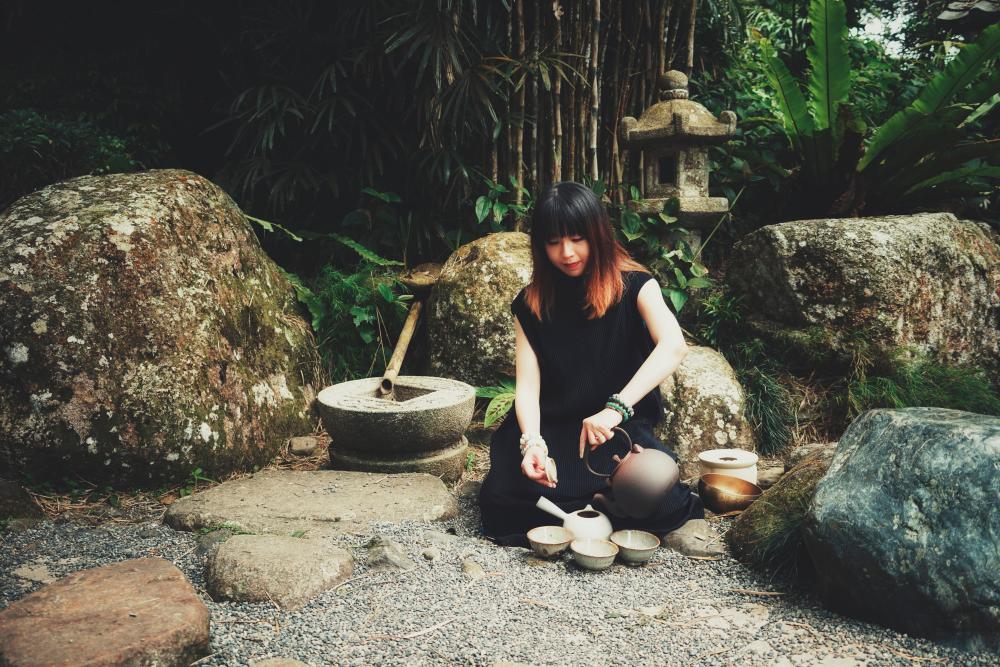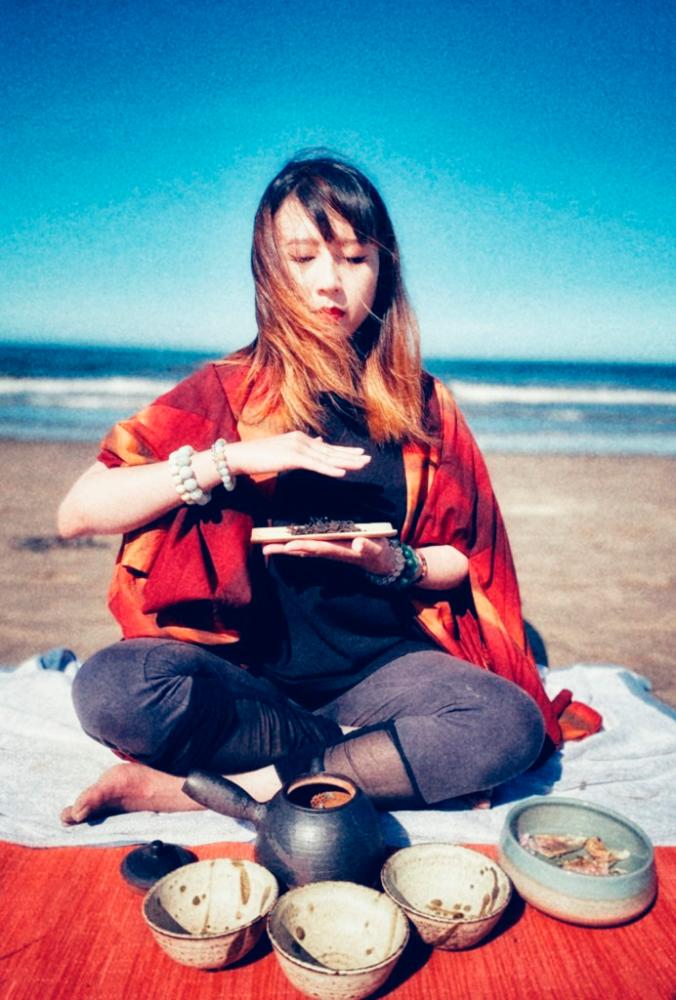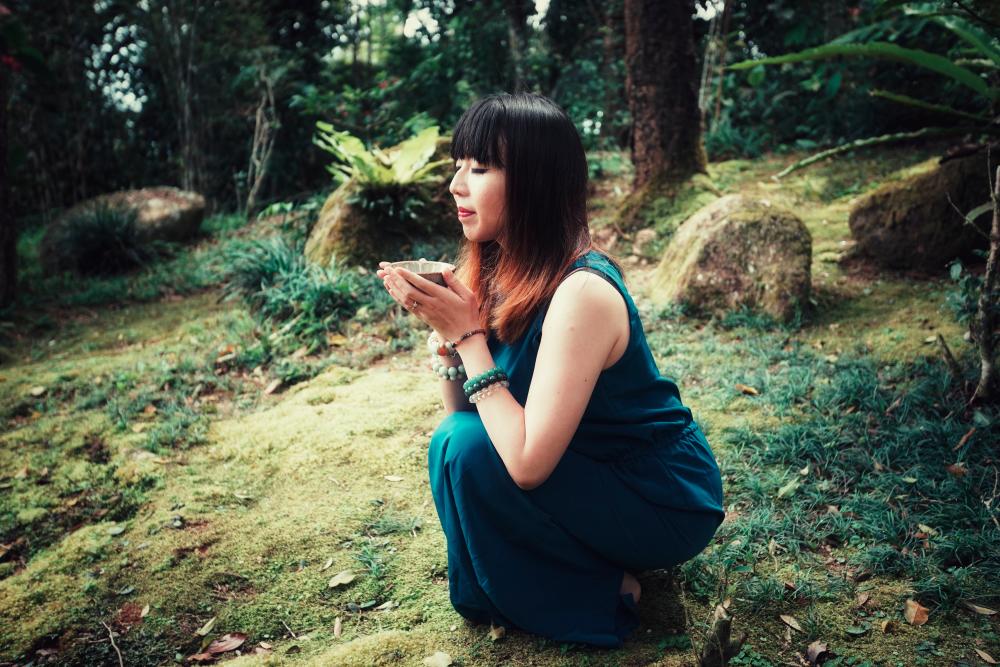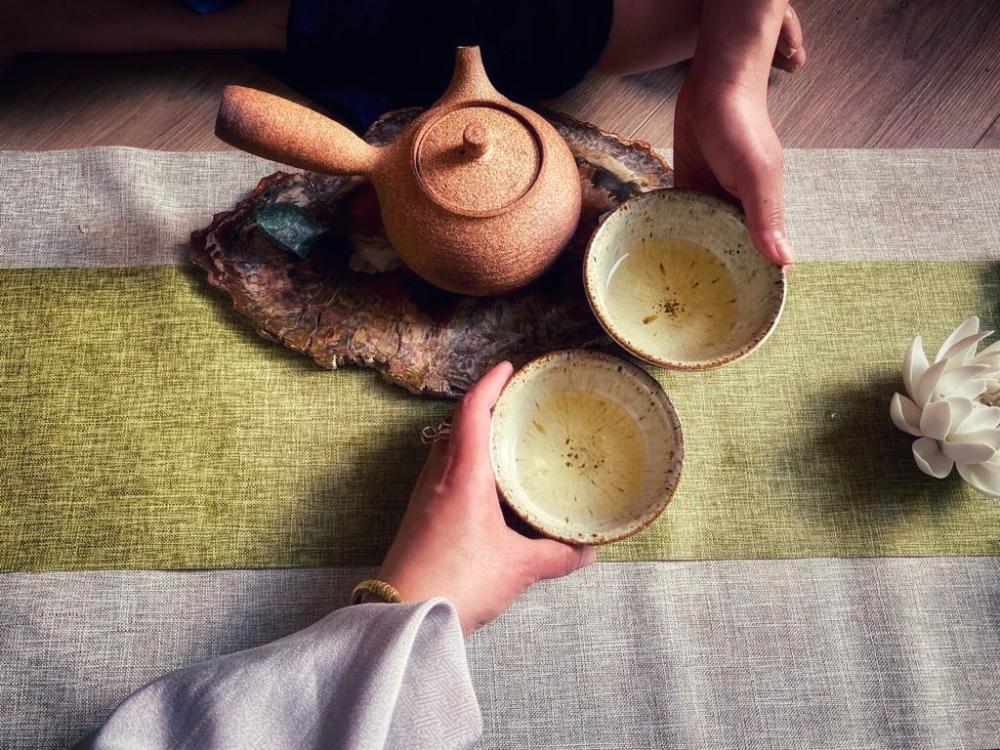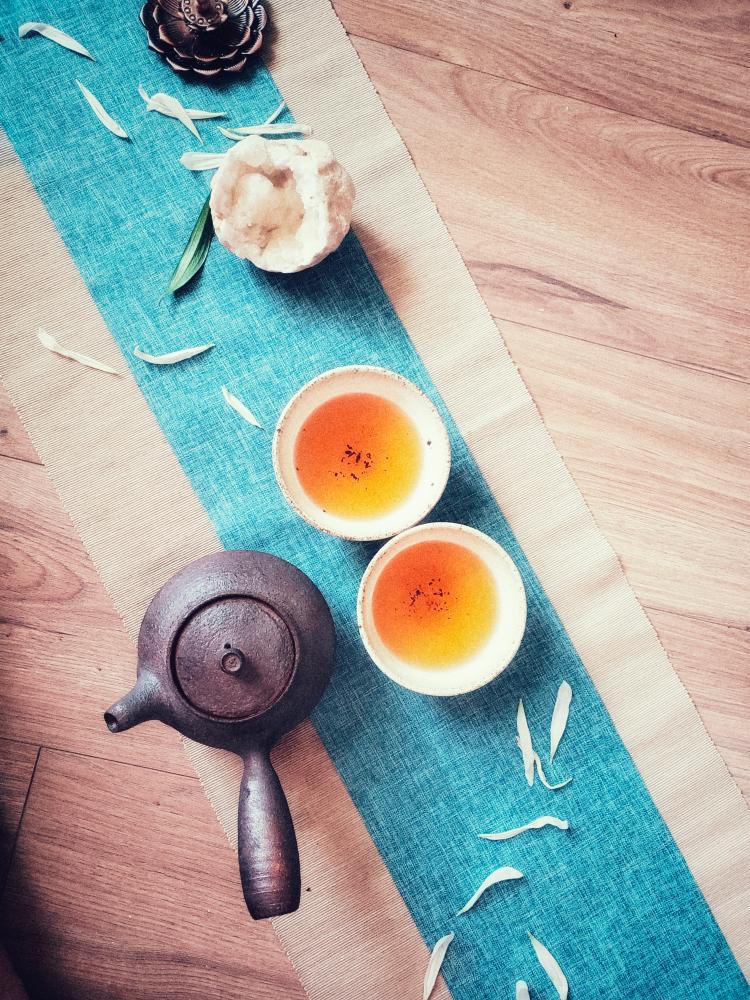THE world has undergone a lot of turmoil over the past year with the spread of the Covid-19 pandemic. The fear of infection, as well as the economic and social stresses brought about by the lockdown, have left indelible scars upon our collective psyche.
Now more than ever, mental health awareness and self-care principles need to be practiced, in order to allow ourselves to cope with a still-uncertain future.
To help us understand the importance of caring for our mental health, theSun interviewed LiYing Lim, a 34-year-old Malaysian-born writer, spiritual healer and tea ceremony meditation specialist currently based in Edinburgh, Scotland.
Lim’s journey of self-healing began after she endured a 10-year struggle with anorexia and depression. She began following tea ceremony meditation, an ancient art in which practitioners learn to focus and calm themselves while performing the ritualistic steps of preparing and enjoying a simple cup of tea.
Today, she helps others find their own inner peace through the art of the tea ceremony, sharing her lessons on her website When Still Waters Speak, and on Instagram (@when_stillwaters_speak).
In an email interview, she recounted her story, as well as her suggestions for how others can follow her methods to find their own road to acceptance and serenity.
What set you off on your journey into spirituality and healing?
“In October 2016, when I finally decided to go full-on with my recovery, I allowed myself to surrender first. I must admit that at that stage, I was terrified... terrified of how fat I was going to become.
“But there I was, and I was committed to do it, once and for all.
“Upon surrendering, I lived a year in seclusion because I was ashamed of my body, ashamed of how it bloated and held onto weight. I know now that that was my body healing in its own way, and through surrender, I can fully embrace my body no matter how it looks or feels like.
“This was the first realisation that released me from that self-imposed prison sentence. No longer was my day hinged upon how much I had eaten or how my body appearance was.
“I love myself, my body, no matter what. It is such a simple pledge, but such a divinely guided and heart-opening one. Since then, I have tried everything that could possibly inch me a step closer to my recovery.
“I can truly see what it means to treat my body as a temple now, and really feel into my divine beingness.
“As I became a ‘Student of the Leaf’, everything fell into place, like autumn leaves falling onto the ground, scattered in wabi sabi beauty (a Japanese term for a world-view centred on the acceptance of transience and imperfection). Perfectly imperfect. I found inner peace and embraced my perfectly imperfect wholeness.
“I cherish the spiritual alignment that comes with the practice of Cha Dao (The Way of Tea). Never have I ever been so at peace and heart-centred. I know always that I have this loving awareness to guide me home when I feel lost and distraught by mind-made egoistic thoughts.”
How did you discover Cha Dao?
“Tea called out to me when I was still living and working in Hong Kong as an expat. As a Malaysian-Chinese transplant, tea as a beverage is something common, and I used to call myself a ‘tea snob’ for sussing out ‘good tea’. When I sat for my first ever tea ceremony at Fivelements Habitat with my dear ‘tea sister’ May Nogoy, I received, in essence, a message and awakening.
“The nonverbal transmission I received during that single sit was so transcendental, so beyond even this version of me, who already abided by a daily practice of meditation and a strong affinity with spirituality, that I went back a month later to revisit the experience. At that point, I was very certain that tea had called me forth. I knew that I had to serve, and thus began my journey on The Way of Tea.”
What exactly are the teachings of The Way of Tea?
“It took me a while to realise that one could drink tea for years, centuries even, but never walk the Dao. The bridge goes both ways, you can travel to the sacred with tea and also from the sacred to the mundane.
“To connect with Cha Dao, we must first let go and begin anew every time and stay present to the now. We learn not to drink tea with our mind and eyes. Sometimes, even not so much with the mouth or palate or taste buds, but with the heart. We do not need labels or names.
“The moment you begin to practise this, you can also see the Zen virtues you cultivate in the ceremony ripple out to your entire life. Zen is not about sitting on a mountain and meditating away. Zen is a state of mind you achieve as you calmly chop wood and fetch water, it is a calm state of mind in which you stay so present to your mundane daily life. It is not what you do, but how you do it. I like to say when life is a ceremony, everything is divine.”
What happens when you host a tea ceremony?
“Online, I simply ask all my clients to come with a bowl or cup, loose tea leaves (if you opt into my retreats you can get a gift set of tea) and enough hot water to go for six rounds. I serve them through Zoom.
“In person, we simply sit together in a mandala and I serve them tea.
“We sit as love flows from our hearts into the bowls of tea, and it becomes simply something sacred to behold. The ordinary becomes extraordinary. Gratitude flows. Creativity unlocks.”
What are the most common issues people seek your help to resolve?
“People who wish to deepen their Zen and Dao practices, people in disordered eating recovery, and people who are simply seeking alternative modalities and want to silence the ego mind, reduce anxiety, and relax after a week of work and family pressure.
“From tea lovers to non-tea drinkers, from those who are familiar with the dance of meditation to those restless ones who fear the silence of the mind, a tea ceremony will allow you to drop from your head into your heart, oftentimes in the most unexpected ways.”
How has the pandemic affected your personal or work routine?
“I have been immensely grateful for this practice as it has helped me to ride out the ups and downs that have come with what has happened over the past few months. I have connected with so many beautiful souls in the online world and I think the importance of an online presence and connection is going to just keep growing in importance.”
Are there any words of hope that you can offer to those who feel overwhelmed?
“I want you all to know that I am really not that special. The truth is that I fully recovered because I took the first step to decide that I am going to take full responsibility and write the best version of my story. Tea simply facilitates our journey of discovery and self-love, of embodying our true Buddha nature – in other words, the authentic self.
“Know that you are loved, and you are forgiven. Your body is never punishing, always forgiving, so give your body a chance. Give yourself a chance to be truly happy, truly free. Sending you all so much love and tenderness of heart and light.”
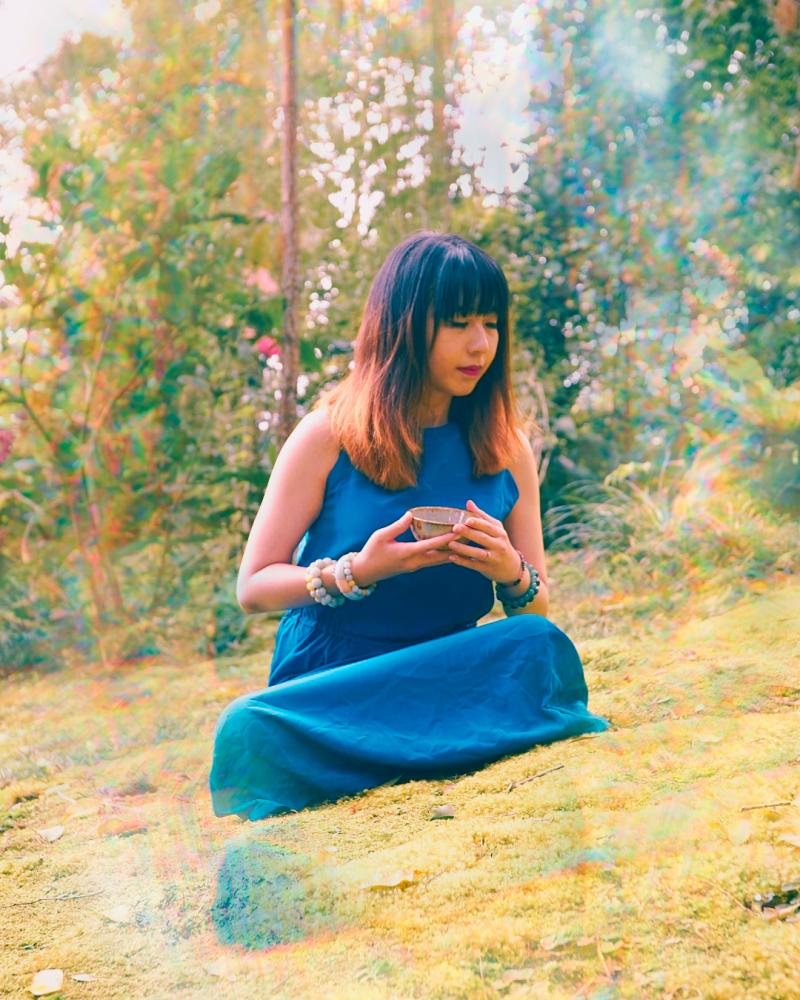
A simple cup of tea
When asked for her suggestions about how Malaysians can practice her methods to cope with negative emotions such as stress and depression, Lim assured us that peace can be achieved even without performing the exact steps of a formal tea ceremony.
“It comes as no surprise that the simplest and free method I will recommend is going into nature. When was the last time you touched nature? I love this question because oftentimes, we automatically think of a tree or some flowers. But what we have forgotten is that we are nature, too. The most authentic self is nature and it can be felt through a connect we forge with one of the most ancient plants on earth – tea.”
“Even if you do not have a facilitator near you who can host a tea ceremony, it can be as simple as sitting in silence with a few tea leaves in a bowl and hot water to connect with the heart. Setting the intention to connect, allowing and receiving guidance from the universe is tremendously powerful in bridging the sacred and mundane moments in our lives. Tea teaches us to treasure the most simple and almost negligible moments. Life is a ceremony, should we choose to see it.
“The simplest way to start is to schedule about 30 minutes to an hour, at a place where you can be on your own with a cup or bowl, some tea leaves, and hot water. In that silent moment, you can begin to connect with stillness, a little bit by the day.”
Lim also believes that regular self-care practices are vital.
“If the pandemic has shown us anything, it is that there is no excuse for us to neglect self-care practices. My daily practice of sitting in reverent silence with tea is vital for me to start every day on the right note.
“Tea master Rikyu once said: ‘If you don’t know a life without tea, then you don’t know tea.’ So on weekends when I am not serving others, I go out into nature and feel into how what I cultivated in the ceremonies are rippling outward to other areas in my life.”



